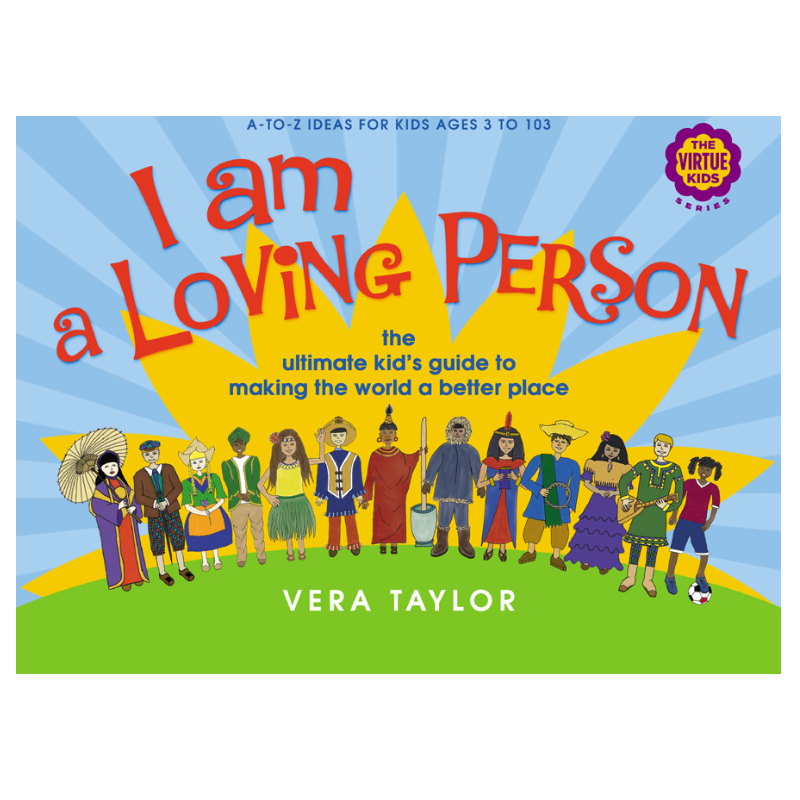Empathy is seeing with the eyes of another, listening with the ears of another and feeling with the heart of another.
– Alfred Adler
Empathy is the ability to understand and share the feelings of another person. It is a virtue that is essential for building strong relationships and creating a more just and compassionate world.
Here are some ways to teach empathy:
- Talk about empathy. Talk to your child about what empathy is and why it is important. Explain how empathy can help us to connect with others and make the world a better place.
- Model empathy. The best way to teach empathy is to model it yourself. Be compassionate in your own words and actions. For example, you could help a neighbor in need, donate to a charity, or simply listen to a friend who is going through a tough time.
- Read stories about empathy. There are many great children’s books that feature characters who demonstrate empathy. Reading these books can help your child to learn about and understand empathy.
- Watch movies and TV shows about empathy. There are also many movies and TV shows that feature characters who demonstrate empathy. Watching these shows can help your child to learn about and understand empathy.
- Play games and do activities that promote empathy. There are many games and activities that can help children to learn about and practice empathy. For example, you could play a game of “I Spy” and encourage your child to find things that they are grateful for. Or, you could have a family meeting and discuss ways to show kindness to others in your community.
- Reward good behavior. When your child demonstrates compassionate behavior, be sure to praise them. This will help them to understand that their good behavior is valued.
Teaching empathy to a child is an important part of parenting. By modeling empathy yourself and providing opportunities for your child to learn and practice it, you can help them to develop a strong character that will serve them well throughout their lives.
Here are some additional tips for teaching empathy to children:
- Help children to understand the feelings of others. This can be done by talking about emotions, reading books about emotions, and helping children to identify the emotions of others.
- Encourage children to help others. This can be done by asking children to help out with chores, volunteering in the community, or donating to charity.
- Praise children for their compassionate behavior. When children are compassionate, be sure to let them know that you appreciate their kindness.
- Be patient. It takes time for children to learn empathy. Be patient and continue to model empathy yourself.
By following these tips, you can help your child to develop the virtue of empathy. Empathy is a powerful force that can make the world a better place.
While we are striving to have empathy, we can be aware that there are some challenges to empathy.
- Difficulties in understanding others’ perspectives. Empathy requires us to be able to understand the perspectives of others, even if they are different from our own. This can be difficult, especially when we are dealing with people who have different experiences, values, or beliefs.
- Emotional contagion. Empathy can lead to emotional contagion, which is the tendency to feel the same emotions as the people around us. This can be challenging, especially when we are dealing with people who are experiencing strong emotions, such as sadness, anger, or fear.
- Burnout. Empathy can be emotionally draining, especially when we are constantly exposed to the suffering of others. This can lead to burnout, which is a state of physical, emotional, and mental exhaustion.
- Self-absorption. Sometimes, we can be so focused on our own feelings and experiences that we forget to consider the feelings and experiences of others. This can lead to a lack of empathy.
Despite these challenges, empathy is an essential skill for building strong relationships and living a fulfilling life. By understanding the challenges of empathy, we can work to overcome them and become more empathetic people.
Here are some tips for overcoming the challenges of empathy:
- Be mindful of your own biases. Everyone has biases, but it is important to be aware of them so that they don’t cloud your judgment. When you are aware of your biases, you can be more open to understanding the perspectives of others.
- Be patient. Empathy takes time. Don’t get discouraged if you don’t always feel empathetic. Just keep practicing and you will eventually get better at it.
- Take care of yourself. Empathy can be emotionally draining, so it is important to take care of yourself. Make sure to get enough sleep, eat healthy foods, and exercise regularly.
- Seek support. If you are struggling with empathy, don’t be afraid to seek support from friends, family, or a therapist. They can help you to understand and overcome the challenges of empathy.
Empathy is a powerful tool that can help us to improve our lives and the lives of others. By overcoming the challenges of empathy, we can become more empathetic people and make the world a better place.










